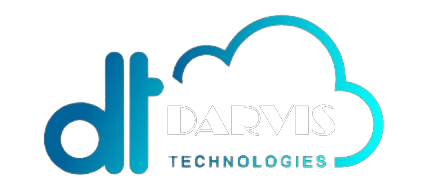Devops Model Explained
DevOps is the combination of practices, tools and cultural philosophies that automate and integrate the process of Software development Life cycle (SDLC). In this process, the software team and IT team work together during Software development and Deployment with common organization goal to better serve their clients and achieving organization’s ability to deliver applications and services at high velocity, continuous evolving and quality products at a faster pace than traditional software development processes. It emphasizes team empowerment, cross-team communication and collaboration, and technology automation.
How DevOps Works
Under a DevOps model, all teams from development, operations, quality assurance and security works together and tightly integrated throughout the software development life cycle. When security is the focus of everyone on a DevOps team, this is sometimes referred to as DevSecOps.
These teams use practices to automate processes that historically have been manual and slow. They use a technology stack and tooling which help them operate and evolve applications quickly and reliably. These tools also help engineers independently accomplish tasks that normally would have required help from other teams, and this further increases a team’s velocity.
the process
The DevOps lifecycle
Plan
Under the planning stage, DevOps teams practice agile to improve speed and quality of the product. Agile is an iterative approach to project management and software development that helps teams break work into smaller pieces to deliver incremental value.
CI/CD
A CI/CD pipeline is a series of steps that must be performed in order to release quality products frequently from source code repository to production with automated workflows.
Operate
DevOps lifecycle is crucial for reducing the planned downtime, such as scheduled maintenance. Eventually, continuous operation automates the process of launching the app and its updates. It manages the end-to-end delivery of IT services to customers.
Build
In this stage, once developers finish their task, they commit the code to the shared code repository. Git is a free and open source version control system. It offers excellent support for branching, merging, and rewriting repository history.
Monitor & Alert
Quickly identify and resolve issues that impact product uptime, speed, and functionality. Automatically notify your team of changes, high-risk actions, or failures, so you can keep services on.
Continuous Feedback
In this stage, DevOps teams assess each release and produce reports to improve future product. By gathering continuous feedback, teams can improve their processes and incorporate customer feedback to improve the next release.
The benefits of DevOps
Why Choose Devops
01
Speed
Teams that practice DevOps release deliverables more frequently, with higher quality and stability. CI/CD allows delivery allows teams to build, test, and deliver software with automated tools.
02
Rapid Delivery
By increasing the frequency and velocity of releases, DevOps teams improve products rapidly. A competitive advantage can be gained by quickly releasing new features and repairing bugs.
03
Scale
A business that can scale consistently is one with great growth potential. Moreover, scalability means that the enterprise can configure its systems to expand during high demand, and scale down when demand falls.
04
Improve collaboration
The basics of DevOps is a culture of collaboration between developers and operations teams, who share responsibilities and combine work. This makes teams more efficient and saves time-related to work handoffs and creating code that is designed for the environment where it runs.
05
Security
By integrating security into continuous integration, continuous delivery, and continuous deployment pipeline. Security is built into the product by integrating active security audits and security testing into agile development and DevOps workflows.
Turbocharge your DevOps Initiatives
Darvis Technologies assist with various practices and solutions available & make DevOps your company culture and mindset. DevOps can seem overwhelming at first. The key is to start small and build together.
